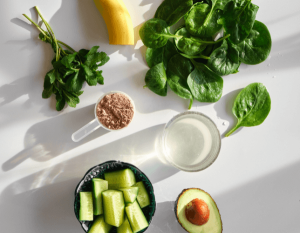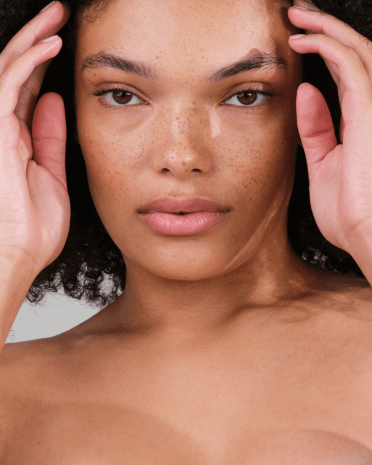Our Medical Director, Dr Gaby, shares practical tips to help keep stressed skin at bay.
For as long as I can remember, my passion has been holistic wellbeing. This is the foundation of healthy skin and active ageing.
Over time, as I worked with patients and researched everything that I could find related to wellbeing, I realised that one of the biggest factors stopping us from being well is stress. Not just psychological pressures, but also physical stressors.
A healthy body can adapt to some stress, which is beneficial in many situations. But when there is too much stress, or when the stress response continues for too long, the body loses its ability to adapt, and our physical and mental health suffers.
The effects of stress
Research has shown that prolonged stress can lead to anxiety, depression and a host of illnesses. Stress affects our sleep and our immune system. It disrupts digestion, increases inflammation, delays healing and can aggravate skin conditions like acne, dermatitis and psoriasis. On top of that, it accelerates ageing.
While stress is unavoidable, the good news is that we can do something about it. Here are three things to consider straight away to reduce the impact of stress, and reduce stressed skin from within.
Stressed skin solution 1: sleep tight
A good night’s sleep is one of the most important things we can do to reduce stress and improve wellbeing. Sleep regulates our hormones, improves our metabolism, immune system, increases physical and emotional resilience, and improves thinking and performance.
Research has shown that most of us need about eight hours of good quality sleep. When we’re stressed, we might need more. Focus on creating a 30-minute pre-bed routine that helps you to relax physically and mentally, and that you enjoy.
Sleep is also one of the best things we can do for our skin – especially stressed skin. It’s the time when our skin goes into night mode and cell renewal peaks, essential for repair.
Stressed skin solution 2: move it
Exercise and movement are essential for reducing the impact of stress. When we exercise, we use up the fuels and cortisol (the stress hormone) that are released during a stressful day.
Ideally, we should include cardiovascular exercise, strength training and stretching throughout the week – all in appropriate amounts for each individual. For me, in addition to cardio (such as running or cycling), I really enjoy yoga. I find it is a great stress reliever and an excellent way to wind down at the end of the day. The physical postures improve strength and release muscle tension, decreasing aches and pains. The breathing also calms down the body’s stress response, helping us to relax. Not only does yoga help to reduce stress, but recent research has shown that it may improve our brain health especially as we age.*
Whatever your chosen exercise, make sure you stay hydrated to keep levels topped up. Sweat is a way for our body to regulate temperature levels and remove toxins from the body. Drinking enough water is essential to support stressed skin, keeping it hydrated and replenishing lost moisture.
Stressed skin solution 3: eat well and eat often

Our bodies need to maintain a stable blood sugar level. When our blood sugar drops too low, a stress response is generated to release more fuel. This stress response has the same effect as being stressed about a deadline. To avoid it, eating regularly is important. Some people feel better eating two meals a day and some need five smaller meals. Everyone is different, so listen to the body and find what works best.
Including fresh vegetables (of all colours) and some fruit in the diet is vital. These contain vitamins and minerals that are essential for helping to manage stress and support immunity. In an ideal world, we would get necessary nutrients from our food, but much of this, even fruit and vegetables, has a low nutrient quality. This, together with our fast-paced lives, can make it necessary to take daily supplements (although if a client has a medical condition, always make sure they check with a doctor before taking supplements).
Nutrition is also super important for healthy skin. A well-rounded diet ensures our skin has everything it needs to function. Vitamin A is essential for skin cell renewal and all-round skin health, found in red and orange foods like carrots, mangos, sweet potatoes and red peppers, as well as spinach. These are all great options to help support stressed skin.
If you have concerns about managing stress levels or if things become overwhelming and begin to negatively impact your life: it is imperative to seek medical advice from a doctor.
References:
* Gothe, Neha P. et al. ‘Yoga Effects on Brain Health: A Systematic Review of the Current Literature’. 1 Jan. 2019 : 105 – 122.


